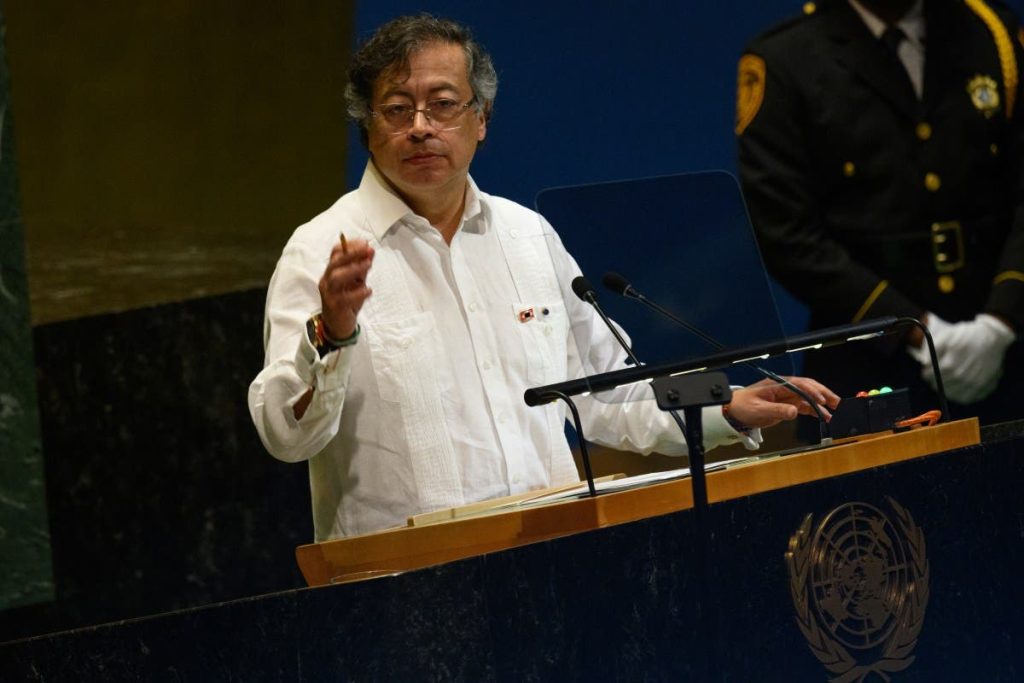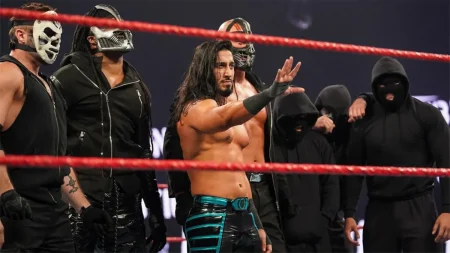Diplomatic Tensions Erupt as U.S. Revokes Colombian President’s Visa
In an extraordinary diplomatic move, the U.S. State Department announced late Friday that it would revoke Colombian President Gustavo Petro’s visa following controversial remarks he made while in New York City for the UN General Assembly. According to the State Department’s statement posted on social media platform X, President Petro “stood on a NYC street and urged U.S. soldiers to disobey orders and incite violence,” which prompted the swift and unusual punitive measure against a sitting head of state from a longstanding U.S. ally. The decision highlights the fragility of international relations even between traditionally friendly nations and underscores how global tensions surrounding conflicts like the Gaza war are creating new diplomatic flashpoints.
The incident unfolded when President Petro, speaking to a crowd gathered outside UN headquarters, made the remarkable appeal: “I ask all the soldiers of the army of the United States not to point their guns at people. Disobey the orders of [President Donald] Trump. Obey the orders of humanity!” These words, delivered on American soil by a foreign leader, crossed a serious diplomatic boundary in the eyes of U.S. officials. The call for military disobedience represents a significant breach of diplomatic protocol, particularly coming from the leader of Colombia, which has maintained close security and counternarcotics partnerships with the United States for decades. The State Department’s decision to revoke Petro’s visa—an extremely rare action against an allied head of state—signals the severity with which American officials viewed his comments.
This diplomatic confrontation unfolds against a complex backdrop of international tensions and shifting political dynamics. The Gaza conflict has polarized global opinion, with many Latin American leaders, including Petro, taking increasingly critical positions toward Israel and U.S. policy in the Middle East. Petro, Colombia’s first leftist president, has positioned himself as a voice for the Global South and has frequently criticized what he perceives as American imperialism and military interventionism. His comments in New York appear designed to align himself with anti-war and human rights movements, but the direct call for U.S. military disobedience struck American officials as crossing from legitimate criticism into dangerous territory that could potentially undermine military discipline and U.S. national security.
The potential ramifications of this diplomatic spat extend far beyond the immediate visa revocation. U.S.-Colombia relations have been built on decades of cooperation in security matters, anti-drug trafficking initiatives, trade agreements, and shared regional interests. Colombia has long been one of the United States’ closest allies in Latin America, receiving billions in security assistance through initiatives like Plan Colombia. The current tension threatens to disrupt this historically strong partnership at a time when both countries face significant challenges, from managing migration flows to combating drug trafficking organizations. Furthermore, the incident raises questions about the boundaries of free speech for foreign leaders on U.S. soil and the appropriate diplomatic responses when those boundaries are perceived to have been crossed.
From a broader perspective, this episode reflects the increasing complexity of international relations in an era of heightened political polarization and shifting global power dynamics. President Petro represents a wave of left-leaning leadership that has swept across parts of Latin America, often bringing with it more assertive and independent foreign policy positions that challenge traditional alignments with the United States. His willingness to make such provocative statements, even at the risk of diplomatic consequences, may resonate with segments of his domestic audience and with others in the region who seek to assert greater autonomy from U.S. influence. However, it also demonstrates the delicate balancing act required of national leaders operating in an interconnected global environment where words can have immediate and significant diplomatic consequences.
As this situation continues to develop, both nations will face difficult choices about how to manage the fallout. For Colombia, maintaining productive relations with its powerful northern neighbor remains economically and strategically vital, regardless of ideological differences. For the United States, balancing the desire to enforce diplomatic norms with the need to preserve functional working relationships with diverse international partners presents its own challenges. The incident serves as a stark reminder of how quickly longstanding alliances can be tested by provocative rhetoric, especially during times of global tension. Whether this episode represents a temporary disruption or signals a deeper realignment in U.S.-Colombia relations will depend on how both governments choose to navigate this unexpected diplomatic crisis in the coming days and weeks.













